M-AAA’s New Program Helps Build Capacity for Arts Organizations
By Elizabeth Snell
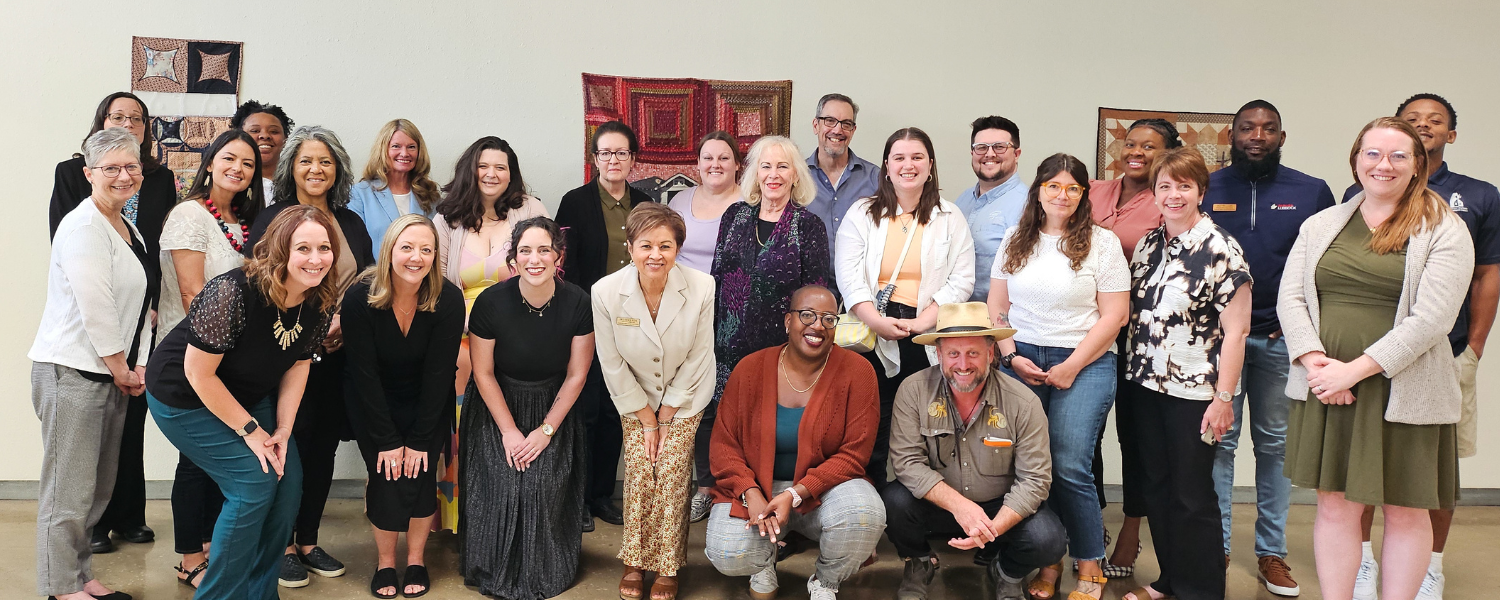
In West Texas, Lubbock Cultural Arts Foundation Director Stacy Keith knew arts leaders in her community wanted to do more. Situated in the arid plains, Lubbock’s art scene is fairly isolated—yet booming. Music festivals, performing arts events, First Fridays, museums, galleries, and more. They attribute their success to a strategy of sticking together, collaborating, and coordinating resources.
Yet, to sustain their hard work, Stacy realized the Lubbock arts community needed to plan for the future ahead. How could they ensure it would continue? How could they attract more interest?
Travel 800 miles and nearly half way across the country to Nebraska, and Dasia Horne, senior program manager for the Omaha Community Foundation, was facing a similar challenge. In her conversations with organizations that serve North and South Omaha’s historic African American and Latinx communities, she realized they needed new approaches. How could these leaders create strong, meaningful strategic plans to carry them forward?
Arts Leaders at the Heart of Community Culture
Community-based organizations like these play a key role in enhancing vitality, increasing connectedness, and shaping local identity. In 2022, the arts and culture sector added $1.102 trillion to the US GDP and is the second leading driver of economic impact, but often it’s not recognized. 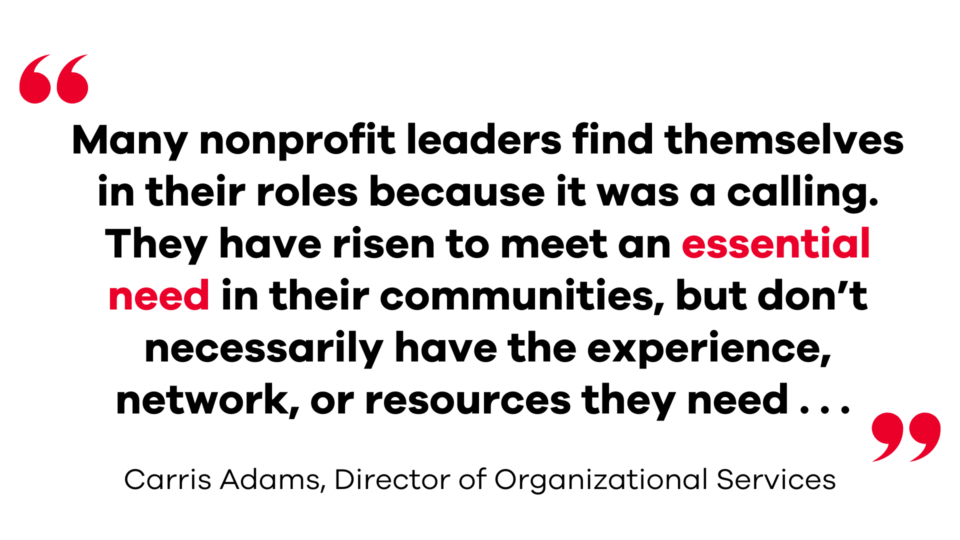
But despite their economic impact, these organizations face challenges that can make growing and sustaining their work difficult. They’re constantly navigating external barriers that can impede their impact—from unforeseen crises, to limited economic resources, to staff turnover, to changing funding priorities. Many organizations need specialized skills, expertise, or specific professional development opportunities for staff.
“Any nonprofit organization, big budget or small, faces issues with fundraising and finance. Help in that area is the most common request that we see,” says Carris Adams, director of M-AAA’s organizational services. “Many nonprofit leaders find themselves in their roles because it was a calling. They have risen to meet an essential need in their communities, but don’t necessarily have the experience, network, or resources they need to further their work.”
Empowering Nonprofit Arts Leaders Through Engage
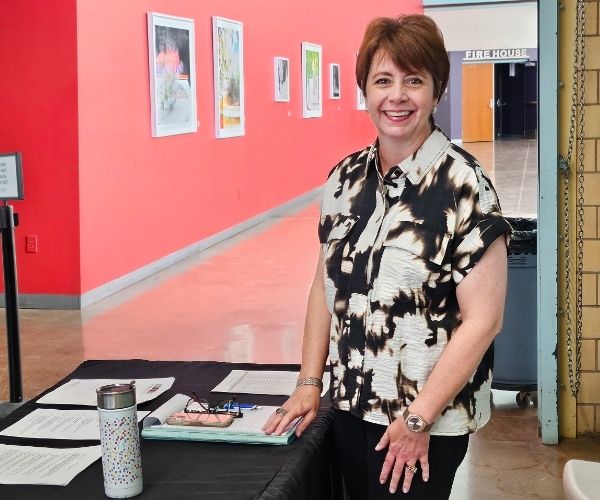
Lubbock Cultural Arts Foundation Director Stacy Keith. The Lubbock arts community hosted an Engage Essentials workshop in Spring 2024.
To help nonprofit arts leaders, directors, and staff navigate persistent issues and get the support they need, M-AAA developed Engage. Using a combination of workshops, coach consultations, and peer-to-peer learning opportunities, Engage works with participants to govern more effectively, become more fiscally astute, and develop strategies to address community needs.
Essentials—the new, introductory workshop—provides arts and culture organizations with a short, strategic refresh on the core tools, strategies, and connections they need to support their mission, revitalize their organizations, and continue making a difference in their communities.
Like the larger, multi-month, Engage program, Essentials still leverages a community-centered, collaborative approach that is responsive to the needs of and co-created with participants—all within a shorter time commitment. It respects the individuality of each organization and meets them where they are, with just-in-time concrete strategies that participants can put to work immediately.
“The beauty of the programming is that it is customizable and transportable,” says Carris. “It can be adapted in any community, around any topic that is affecting your community-based organizations, for any time period that makes sense—all using the learnings, resources, and best practices we’ve gleaned from the capacity-building work that we’ve done with over 100 organizations across the region since the first program began in 2012 in Houston.”
Lubbock Arts Groups Build Upon Collaboration
“Lubbock is a special place. There is loads of talent here, so what LCAF seeks to do is help our creatives build capacity through professional development, networking and support,” Stacy said.
To gather consensus on the topic for their Essentials session, she sent a survey out to local Lubbock organizations. Gallery directors, volunteer coordinators, grant writers, program managers, artists, and staff all shared their responses.
They wanted to focus on empowering local arts leaders to develop their grant writing skills with the aim of seeking new funding sources. With a guest presentation by Tabitha Dunham, M-AAA’s grants and development specialist, the group discussed their arts ecosystem. They also learned about incorporating storytelling into their grant writing strategies.
“The art of grant writing is an important skill to have in order to be successful in the fundraising field,” said Stacy. “The session led by Tabitha was insightful and she offered suggestions and encouragement to the organizations in attendance.”
Omaha’s Arts Leaders Create New Strategic Plans
Omaha, Nebraska, had a similar goal—funding—but needed something completely different from their session.
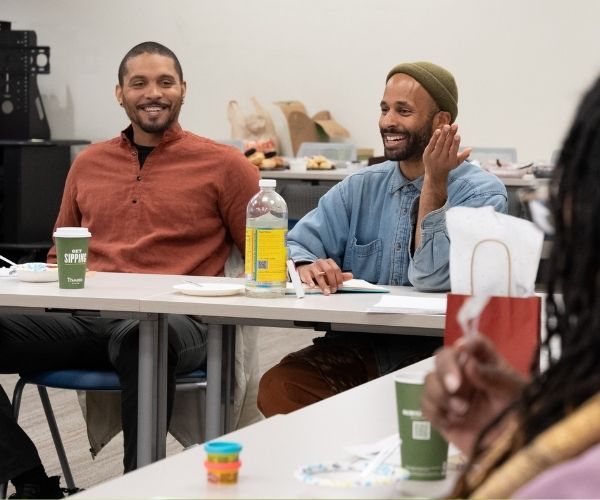
Participants during the Omaha Engage Essentials
“Omaha has a lot of grassroots leadership with incredible engagement. But, they wanted to focus on developing their strategic plans to access more funding opportunities,” said Carris. M-AAA organizational services staff facilitated and provided new approaches and options for strategic planning, along with a discussion about grant requirements and the competition of arts funding.
“To complement this productive strategic planning initiative, we were able to meet like-minded community leaders who could help grow our network and organizations. I was able to forge partnerships and learn information that has helped me better lead my organization,” said Xavier Jackson, founder and CEO of Local Art Plug and a participant in the Omaha session. “[M-AAA] challenged us to get out of our comfort zone by forcing us to ask ourselves tough questions.”
Development of these skills ensures long-term sustainability and improved community impact. The most important indicators of success throughout our Engage programs include demonstrated improvements in effective governance, mission alignment, enhanced professional networks, effective leadership, improved authority, advanced audience engagement, improved financial oversight, and effective fundraising strategies.
Essentials helps strengthen participating arts organizations and arts leaders, amplifying an arts ecosystem that supports the wider community.
Bring Engage Essentials to Your Community
As the Essentials program continues to grow, new locations are planned for the coming year.
If you are interested in hosting an Engage or Essentials session, contact us at engage@maaa.org.
Learn more about Engage here.
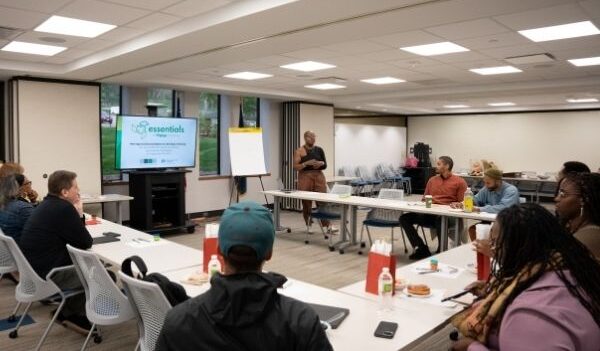
Carris Adams, M-AAA’s director of organizational services facilitates a discussion during the Engage Essentials Omaha.

